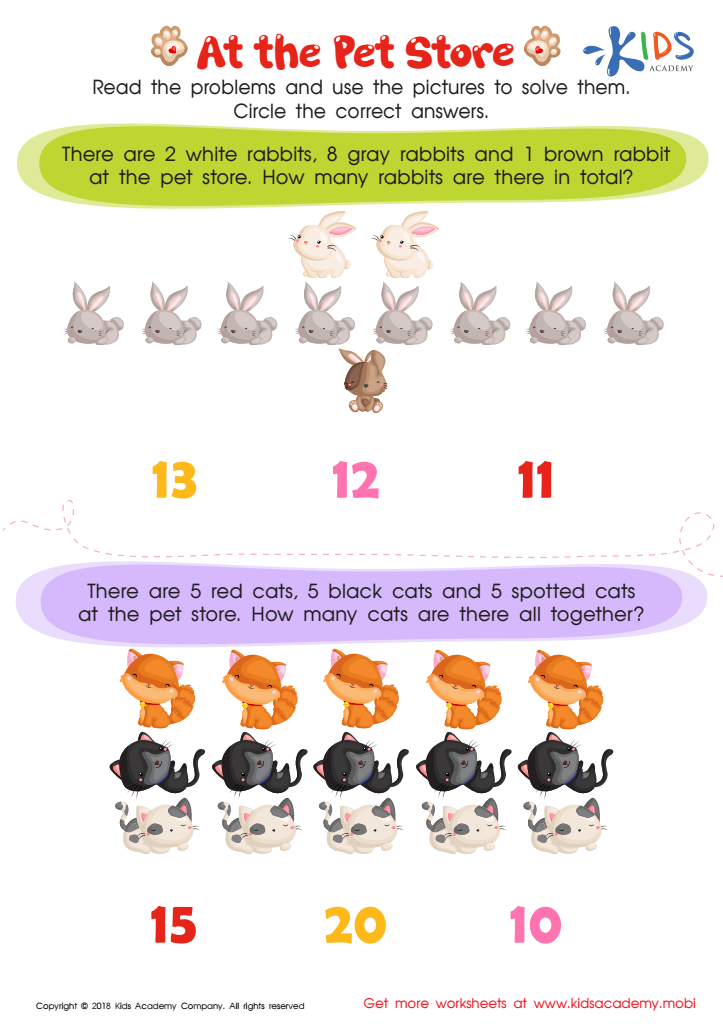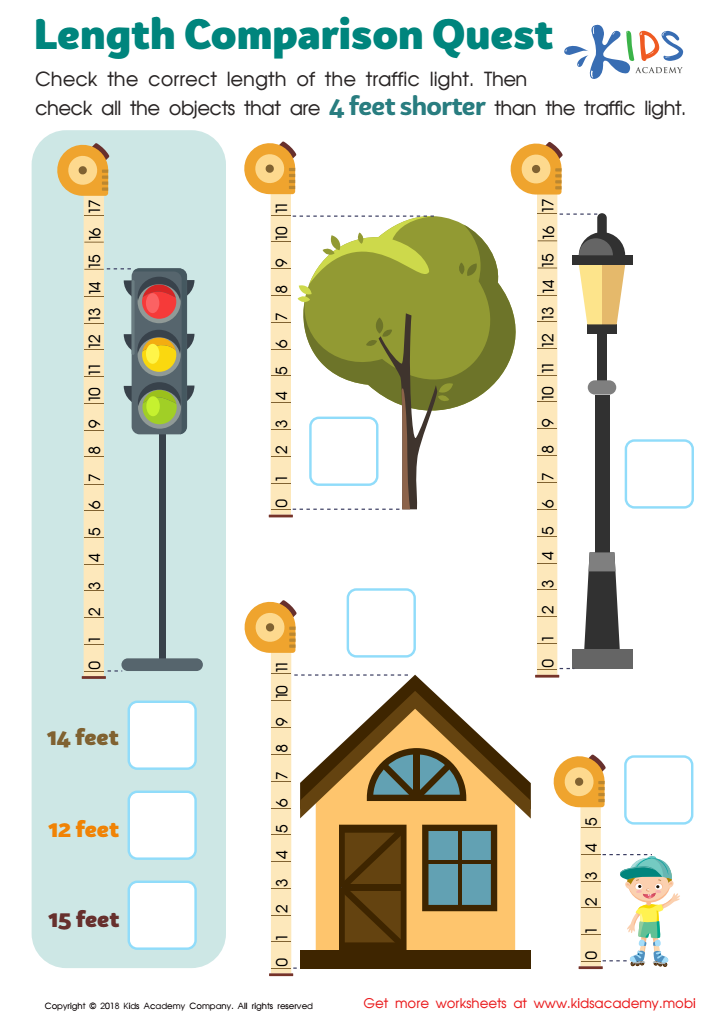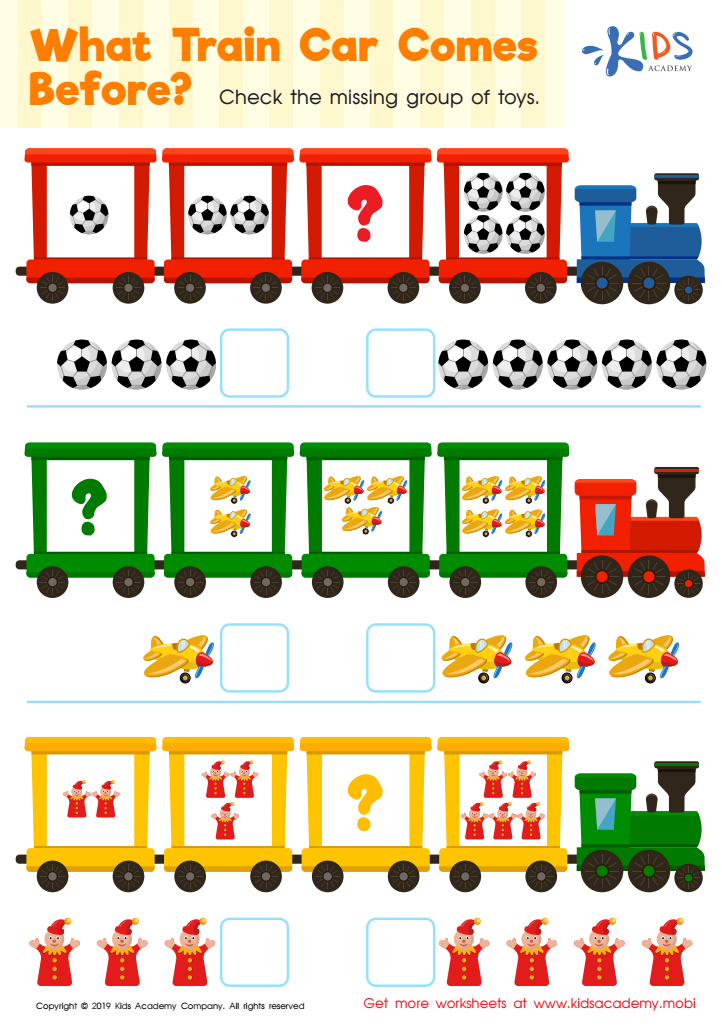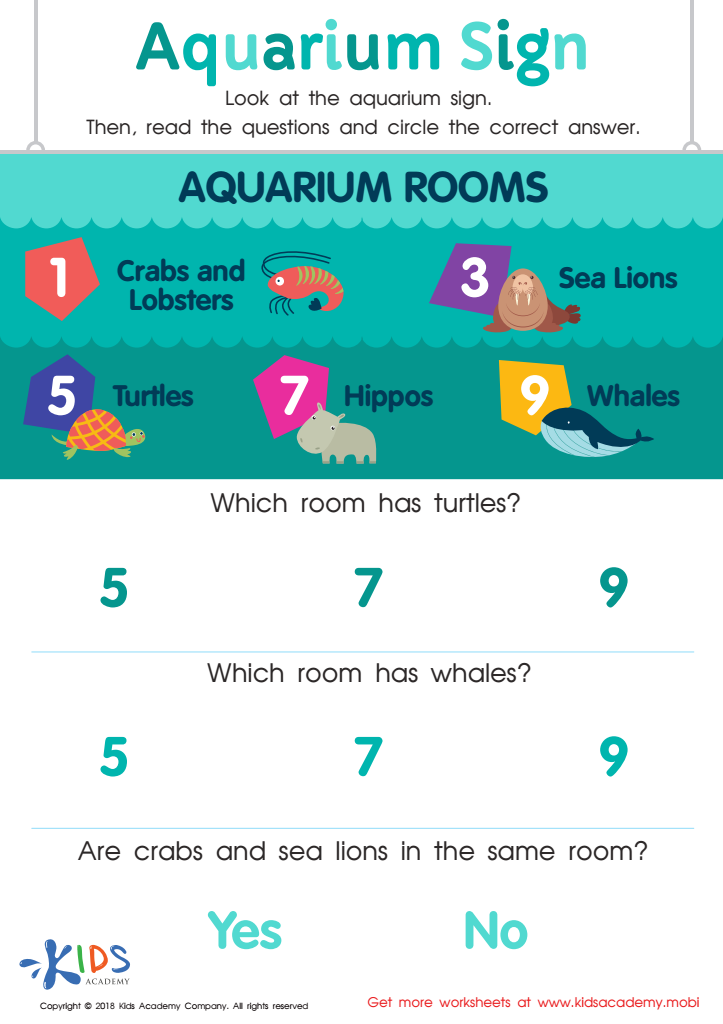Critical Thinking Easy Numbers Worksheets for Ages 4-8
4 filtered results
-
From - To
Introducing our "Critical Thinking Easy Numbers Worksheets for Ages 4-8" – the perfect tool to develop your child’s numerical skills and logical reasoning. Designed specifically for young learners, these worksheets engage math minds with fun activities that foster critical thinking. Each sheet progressively builds foundational skills, encouraging children to explore patterns, sequences, and problem-solve creatively. Ideal for both classroom and home use, our worksheets turn learning into an interactive adventure. Help your child excel in math with engaging exercises that make learning numbers enjoyable and effective. Empower your young learner today with critical thinking and essential math skills!


At the Pet Store Word Problems Worksheet


Length Comparison Quest Worksheet


What Train Car Comes Before? Worksheet


Assessment: Aquarium Sign Worksheet
Critical thinking and a strong foundation in basic numeracy are pivotal during early childhood, laying the groundwork for future academic success and practical problem-solving skills. "Critical Thinking Easy Numbers" activities designed for children ages 4-8 are more than just educational tools; they nurture cognitive development and adaptive thinking from a tender age.
Young children are naturally curious, and when parents or teachers provide structured yet playful opportunities for exploring numbers, they ignite an interest in learning. These foundational exercises develop crucial abilities such as pattern recognition, logical reasoning, and the basics of mathematical operations. Engaging in activities that blend critical thinking with simple number concepts helps children not only to master counting and basic arithmetic but also to develop skills necessary for higher-level math and reasoning.
For instance, when children solve puzzles that ask them to identify missing numbers in a sequence or count objects to match a numeral, they're learning to observe details, make predictions, and validate their own conclusions. These skills are transferable to other subjects, fostering a robust educational background.
Moreover, encouraging early critical thinking with numbers builds a child's confidence, persistence, and problem-solving philosophy, helping them tackle more complex challenges as they grow. Investing time in these developmental experiences ultimately equips children with the tools to navigate and conceptualize both academic and real-world scenarios effectively.
 Assign to My Students
Assign to My Students

















